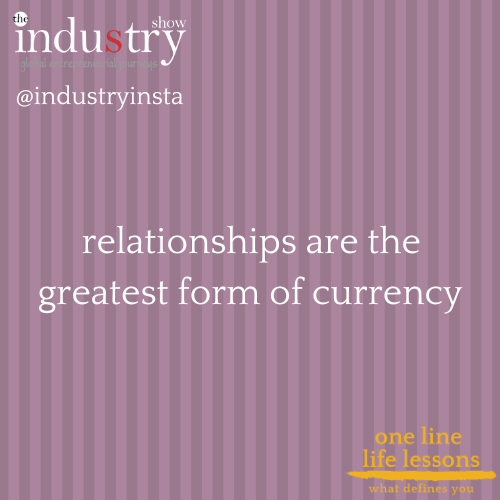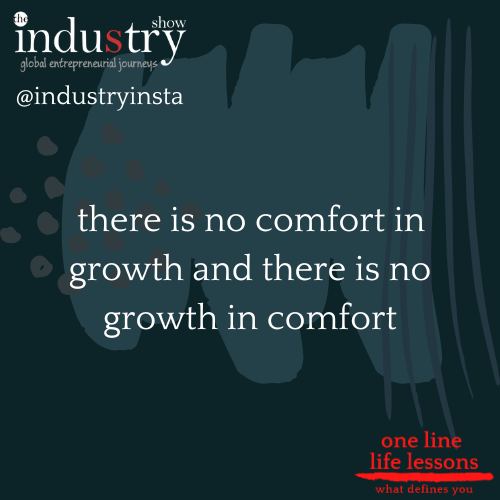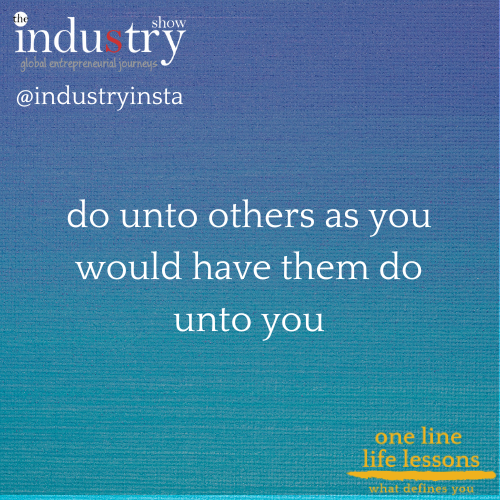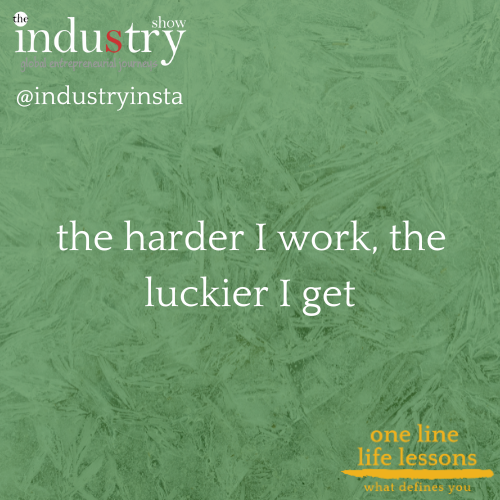Oct 04, 2025
Tushar
Kumar
Tushar Kumar is the co-founder, Twin Peaks Wealth Advisors – helping tech professionals turn equity, major life decisions, taxes into clear strategy. His Portfolio of $520M+ specializes in acquisitions, concentrated stock positions, and IPOs through values-aligned wealth strategies.
One Line Life Lessons from Tushar





Episode Highlights
- 00:10-00:59: Tushar Kumar introduces himself as a wealth advisor for tech employees. He helps them make smart financial decisions. He combines analytical thinking with a personal connection.
- 01:17-01:56: Tushar Kumar describes Twin Peaks Wealth Advisors. The boutique firm helps tech professionals grow and protect wealth. Its mission is to give financial confidence through customized advice. The team has 12 people and manages $520 million in assets.
- 02:18-04:36: Tushar Kumar shares his personal motivation. His father’s cancer diagnosis led to a financial advisor helping his mother. This advisor brought clarity and confidence. This experience shaped his desire to help others. Twin Peaks started to offer a more holistic and personal financial approach.
- 06:06-08:43: The biggest challenge is balancing growth with personal service. Solutions include adding team members and investing in technology. Examples: AI note-taker for meetings, a CRM for task management, and account alerts for clients.
- 08:55-10:11: An exciting opportunity is blending culture and community with financial planning. Money follows values. The firm hosts client events like Diwali and Lunar New Year parties. True wealth means living well.
- 10:26-11:13: Tushar Kumar recounts an experience. A client chose Twin Peaks because Tushar Kumar understood their cultural value of prioritizing children’s education over retirement. This highlighted the importance of cultural insight in financial advice.
- 11:40-13:22: Tushar Kumar shares a setback: losing a client due to a communication gap. The firm improved its processes and communication. This change led to 150% business growth in one year. It was a valuable lesson.
- 13:24-15:10: Tushar Kumar describes helping a client with concentrated company stock, capital gains, and nearing retirement. The firm helped reduce risk, manage tax outcomes, and generate passive income. The client gained confidence and peace of mind.
- 15:31-16:07: For fun, Tushar Kumar enjoys playing ping pong, watching sports (49ers, Giants, tennis), walking to the beach, and weightlifting followed by a steam room session.
- 16:27-17:11: Tushar Kumar recommends “How to Win Friends and Influence People” by Dale Carnegie for building relationships. He also suggests “The Soul of Wealth” by Daniel Crosby for insights into behavioral economics and money psychology.
- 17:22-18:20: Tushar Kumar offers five life lessons: money is a tool for life design, relationships are the greatest currency, growth comes from discomfort, follow the Golden Rule, and hard work brings luck.
Show Transcript
Transcript - Full Episode
[00:00:00 – 00:00:08] Nitin Bajaj
Hey everyone. Welcome to the industry show. I’m your host, Nitin Bajaj. And joining me today is Tushar Kumar. Tushar, welcome on the show.
[00:00:08 – 00:00:10] Tushar Kumar
Hey, Nitin, thanks so much for having me.
[00:00:10 – 00:00:14] Nitin Bajaj
Great to have you here. Let’s start with the big question. Who is Tushar?
[00:00:15 – 00:01:00] Tushar Kumar
Thanks. Well, yeah, my name is Tushar Kumar and look, I’m a wealth advisor and started my business up in San Francisco back in 2009. But really I’m someone who’s passionate about helping, really helping tech employees make really smart, intentional decisions with their money so that they can live the life that they, that they want. And I think one thing that I’m particularly focused on is blending analytical thinking with a personal touch because I think that’s important when it comes to money. While I do enjoy digging into complex issues, I also really enjoy digging into my clients personal lives, their dynamics, getting to know them on a more human level. But I’d say look outside of work. I’m a very curious person, very driven, and I would say I’m a lifelong learner. So that’s who Tushar is.
[00:01:00 – 00:01:16] Nitin Bajaj
We are going to do what you do with your clients. We’re going to dig deeper into who you are, get to know you a little better. All right, so let’s start with why Twin Peaks? What is it? What’s the mission? You and your brother have been doing this for a few years now. Give us a sense of the size and scale of your operations.
[00:01:17 – 00:01:58] Tushar Kumar
Yeah, absolutely. Twin Peaks Wealth Advisors is a, it’s a boutique wealth management firm and we are focused on helping tech professionals grow, protect and purposefully use their wealth. So when I think about our mission, it’s really to provide financial confidence by delivering highly customized financial advice. And ultimately really what we want to do is give clients the ability to pursue their goals. And so to give you an idea of our size and scale, we’re about a 12 person team right now. We manage $520 million of assets. And I’ve been doing this for the last 16 years. It’s the only career I’ve ever had.
[00:01:59 – 00:02:19] Nitin Bajaj
This is fascinating, the growth you’ve been able to bring in. And so kudos to you, your brother and the rest of the team for how quickly you’ve scaled, but also the value you bring to your customers and community at large. Why do this?
[00:02:21 – 00:04:34] Tushar Kumar
That’s a good question. Well, I would also say, look, congrats to you. I mean, you’ve had a lot of success building your organization. And after you reached out to me, I Did some research on, on what you’re building and the impact you’re having through the events, through, you know, the industry show. And so I think you deserve a lot of respect and recognition as well. But, you know, to tell you a little bit about, like, why we do this, there’s. I’ll tell you my personal backstory of how I got into financial advice generally and then how we ultimately started Twin Peaks. But my story is this. When my brother and I were 14 years old, our father got diagnosed with stage four cancer. And so he was given a few months to live. And during that time, he helped my mom hire a financial advisor that was going to help help her after he was gone. And that advisor really helped us for about 20 years thereafter. And he became a very integral part of our lives. And he helped us move from this place of not having a ton of clarity to having a ton of confidence around our financial plan. And you can imagine at that time, my mom had two twin boys. She was recently a widow. She was never the primary breadwinner. She didn’t have a whole lot of financial know how at the time. And so she had all these questions like, am I going to be able to retire in the Bay Area? Or can I send Tushar and Vishal to college without them having to take out loans? And so the. That was really our first insight in working with a financial advisor. And we saw how much support and clarity he brought to my mom’s financial planning process. So when people ask me my why that, that’s really it. I want to bring that clarity to other people who may not have the time or maybe not have the know how to get things done. But to answer your question more specifically about why Twin Peaks? Why did we start what we did? Vishal, my twin brother and I, we saw a gap between what traditional wealth managers were offering and what clients truly needed, which was a more holistic, proactive, and deeply personalized approach. And so we really wanted to build a firm where advice wasn’t just about investments, but it was also about financial planning and strategy and ultimately supporting the life goals that our clients have.
[00:04:36 – 00:05:18] Nitin Bajaj
I love that for multiple reasons, starting with, this is something that’s deeply personal to you and you saw the value someone can bring to someone’s life, just beyond the basics of numbers and what have you. And touching this back to what you said at the start, you really get to know your clients because then you are an extension of family to them and you’re there as their trusted advisor making the right calls, the right decisions. For them, because you’re the experts. But now you also know what their needs, what their demands, what their wants are, and you can really guide them in the right direction. I love that.
[00:05:18 – 00:05:42] Tushar Kumar
That’s right. Yeah. And there’s no detail too small to share, which is what we tell our clients. We want to know who are the important people in your life, who are your friends? What are your opinions on different things, ranging from politics to your favorite vacation destination, what you like to eat? All of these things help us create a more bespoke experience and ultimately provide good guidance. I think knowing people on a personal level is. That’s what keeps me excited.
[00:05:43 – 00:06:05] Nitin Bajaj
So knowing people is exciting to me too. With that comes a certain amount of challenges. There’s emotion. There is maybe in some cases for justified reasons, drama. There is family, and a lot can and does happen. But if I were to ask you to call out the biggest challenge for you’re facing, what would that be?
[00:06:06 – 00:07:58] Tushar Kumar
Yeah. Now that we’ve been running the firm for 16 years, we have more clients, we have a little bit of a name in our community. And so the. I’d say the biggest challenge is balancing scale with personalization. I’m excited about growing the business and getting our name out there and helping more clients. But I also want to make sure that we don’t get away from the high level of personalization that really sets us apart. We really pride ourselves on, you know, providing a very bespoke experience, very fast response times. I live in my inbox and my texts, and our clients have told us that over the years. We love how much attention you’re able to give to us. We don’t know how you guys are able to. To act so quickly on things. And so that’s really our biggest challenge, is making sure that we’re balancing that scale. But really how we’re addressing it is in a few ways. There’s really through human capital as well as technology. So naturally, as our client base has grown, we’re adding more team members to make sure that we have a good ratio of staff members to clients, and we’re delegating the roles and responsibilities appropriately. But we’re also heavily investing in technology to make sure that we’re keeping response times fast, that we’re keeping things highly personalized and information accessible to our clients. And so to give you some concrete examples of how we’re doing this is that in the last year, we’ve added an AI note taker to our client meetings so we can capture what’s happening in our meetings and Send clients the notes immediately after to make sure that we’re all aligned on what’s happening. We’re also leveraging our CRM to make sure that certain tasks are happening at specific times throughout the year for our clients. We also use account alerts for our clients, bank accounts and things. Nitin, if you were a client of Twin Peaks and I flagged your bank account, I could reach out to you if you have too much cash sitting there, that should be invested. And so we’re using these tools to make sure that we stay on top of our clients at scale.
[00:08:00 – 00:08:21] Nitin Bajaj
And I would think the fact that a majority of your clients are tech professionals, they also appreciate that you’re using technology not just for, obviously, the efficiency of operations, but also that you resonate with them and essentially speak the same language and create that same environment that they would expect.
[00:08:21 – 00:08:46] Tushar Kumar
That’s right. Yeah. Having a really good tech stack was something that was really important to us when we were deciding between going to a larger firm versus versus starting our own. And what we liked about starting our own is that it gave us the freedom and flexibility to buy the best tech that’s out there and bring that to our clients. So we definitely pride ourselves on our tech stack. I think there’s. We’re amongst the top in terms of a tech stack for our industry.
[00:08:47 – 00:08:55] Nitin Bajaj
Sweet. Now, on the flip side of challenges come opportunities. I’d love for you to call out the one that’s most exciting for you.
[00:08:55 – 00:10:12] Tushar Kumar
Sure, yeah. This is a. This is a new one. But we’re really excited about integrating culture and community with financial planning. And our viewer, our opinion is that money follows values. So we’re hosting 12 different client events throughout the year at the very least. And the goal of these events is to foster community within our client base and to share memorable experiences. So this year, actually, just in a few weeks, we’re hosting our first ever Diwali party. Naturally, I’m a South Asian. I have a lot of South Asian clients. This is a holiday that a number of my clients already celebrate. We’ve rented out a restaurant in the Peninsula in Belmont, and we have about 70 clients coming out for that event. And we just think it’s a great way to. To bring successful people together around a. A cultural holiday. We’re also hosting a Lunar New Year party this year. We’ve got a couple of advisors on our team who are of Vietnamese descent, and they have a number of Chinese Vietnamese clients. And so that’s something that we’re excited about. But I think, yeah, bringing integrating culture with our, with our firm is a very unique value proposition. And we really believe that true wealth is about more than just money. It’s about living well. So we’re finding ways to explore people, exploring new ways to bring people together in that regard.
[00:10:12 – 00:10:26] Nitin Bajaj
I love that. And in many ways, our culture also defines what money is to us, what our relationship with it is, and knowing that and respecting that and then bringing that perspective.
[00:10:26 – 00:11:14] Tushar Kumar
Yeah. And I’ll share a story with you that I experienced very early on in my career. So I was pitching this client, they lived in Fremont, California. They were a South Indian couple. And they were interviewing me and this other advisor, the. And they met with both of us. They ended up selecting us. And I asked them why and they said when we were talking about funding our kids education, the other gentleman said that, hey, you should really plan for your retirement first, because you can’t take out loans for your retirement, but you can for your kids education. And they said you understood our South Asian values and knew that no matter what, we’re going to pay for our kids education, even if it means we can’t retire the way that we want to. And that was just a. That was an aha moment for me where I was like, okay, this is something I take for granted because I’m Indian and that’s what I’ve grown up around. And it may or may not even be the right philosophy, but I just understood it. And they were like, okay, yeah, this is our guy.
[00:11:15 – 00:11:39] Nitin Bajaj
I love that. Since we talked about a little bit of future and opportunities, I want to pause and reflect and have you share two moments from your life and career. One where things did not work out as you had expected. There was disappointment, failure, lessons. And another where things exceeded your expectations and became a success beyond your imagination.
[00:11:40 – 00:13:04] Tushar Kumar
Yeah, absolutely. So I’d say one failure I had was about five years ago in 2020, we. One of our clients decided to stop working with us. They went to a competitor of ours and. But he was a very kind client. He was very willing to share, like why he was making the change. And he told us is, hey, this firm is doing X, Y and Z. We learned in that process that, okay, we were also doing those things, but we weren’t communicating it to the client. And I couldn’t sleep for a couple of days after I got this call because I felt that he had made this decision. Ultimately, I realized it was our own shortfall. But what I learned was that my biggest success often comes from our biggest failures. So what we did was after we lost that Client. We embedded a process into our system to make sure that we were delivering on all those things that he specifically told us about. And we roll that out across our entire client base. And then we started communicating that value to our existing clients as well as every prospect that came in the door. And by making that change in one year, our business grew by about 150% because people just saw what we were doing. We were much more transparent about things. And there was other stuff that went into it, but that I remember that moment because being fired is never a good feeling. But that that ended up being the biggest blessing in disguise. While it was a failure. I look back at it as a really as an opportunity.
[00:13:04 – 00:13:15] Nitin Bajaj
Takes a lot of wisdom and courage for someone to acknowledge that, but also look deeper into the failure for those lessons that go back and help you scale newer heights.
[00:13:15 – 00:15:12] Tushar Kumar
Yeah, yeah. Looking back on it, it was a blessing in disguise that it happened because it really changed the trajectory of our company. But in the moment it wasn’t particularly fun. Now, you had also asked about a success story. I’ll share with this actually very recently happened. So a client came to us. They he felt very over concentrated in his company stock. Had been at one of these tech companies for a couple of decades. Just by virtue of being there for so long, he had a huge amount of capital gains built up on the stock. And that was one of his reasons for not selling, because he felt like, hey, every time I sell my stock, I’m going to be paying taxes. So really his goals were to de risk his portfolio from having everything in this one stock. He wanted to be mindful of taxes. He also still wanted to hold on to some of his stock because he really believed in the company and he felt a loyalty to this company that had basically given him this amazing life that he was now living. But he’s also approaching retirement, so he wanted to start generating some passive income from his investment. So really what we did there was we helped him identify how much of his stocks he needs to sell to basically secure his family’s financial future and his retirement. And we employed two different strategies for him to manage the tax consequences of the sale. I’m not going to get into those nuances today, but just at a high level. We used a strategy called direct indexing and another strategy called an exchange fund. And both are there to help people pay less in capital gains taxes. We also then took some of the proceeds from the stock that he sold and we invested into a real estate fund as well as a private credit fund to Generate some monthly income because he was looking at to retire. But now he reached out to us that he feels very confident about his strategy. He’s sleeping well at night knowing that he took the right steps to diversify, that he’s not paying too much in taxes, but he still has this loyalty to the company and has some skin in the game. So we felt like it was a very complex situation to unwind, but we got that immediate feedback from the client and. And things are going well.
[00:15:12 – 00:15:23] Nitin Bajaj
Love that. It’s like you have a bunch of pieces of puzzles and you figure out how to put them together and make it look really awesome.
[00:15:23 – 00:15:25] Tushar Kumar
That’s right. That’s exactly right.
[00:15:26 – 00:15:30] Nitin Bajaj
Now, switching gears. What do you do for fun?
[00:15:31 – 00:16:09] Tushar Kumar
All right, so I love playing ping pong. My dad taught me how to play when I was growing up and me and a bunch of my cousins have played over the years. So I do regularly take ping pong lessons. I also love watching sports. I’m in a big 49er fan. San Francisco Giants. I also love watching tennis. Those are probably my favorite three sports to watch. I also recently moved down to Southern California about a year ago and I live walking distance to the beach, so I enjoy walking to the beach regularly. And I have to say I love a good weightlifting session followed by a steam room session. It’s just a good way. A good way to spend my day.
[00:16:09 – 00:16:12] Nitin Bajaj
Yeah, we should definitely play ping pong. It’s.
[00:16:12 – 00:16:13] Tushar Kumar
What do you play?
[00:16:14 – 00:16:14] Nitin Bajaj
I do.
[00:16:16 – 00:16:18] Tushar Kumar
Oh, all right. All right. Yes, I would love to play with you.
[00:16:18 – 00:16:26] Nitin Bajaj
All right, it’s a done deal. Now, any book or podcast that is a favorite and you would like to share.
[00:16:27 – 00:17:11] Tushar Kumar
Yeah, there’s two books that come to mind. One book that I read early on in my career was how to Win Friends and Influence People by Dale Carnegie. It’s a book that still helps me to this day, and I’ve read it a couple of times. At this point, I’d say for anyone who wants to build stronger relationships, that book can really help. And it’s in my view relationships are the strongest form of currency. That’s something that my. My mother always taught me and that that book really helped me effectuate that. The second book is called the Soul of Wealth by Daniel Crosby. He’s a behavioral economist and he’s got a handful of books, but that one in particular is good. I’m really into behavioral economics and the psychology around money generally, but I think that one is good if you’re into that sort of thing.
[00:17:11 – 00:17:21] Nitin Bajaj
Thanks for sharing those. Now onto my favorite Part of the show, we call this the one line life lessons. Tushara, I’d love for you to share your life lessons with us.
[00:17:22 – 00:18:20] Tushar Kumar
Sure. Yeah. So I wrote down five life lessons, so I’ll start with the first one that’s relevant to my line of work. But it’s Money is a tool. Use it to design a life that you love. Too often I see my clients and people that I know just trying to hoard money. But ultimately it’s. It really is a tool to live the life that you want to live. So don’t be scared of using it. The second life lesson is that I said this earlier, but relationships are the greatest form of currency, and I’ve seen that in my own line of work. They compound in this way that it’s just hard to explain until you’re doing it. Life lesson three. There is no comfort in growth, and there is no growth in comfort. I’ve learned that the hard way in life, but now I try to embrace the discomfort. Life lesson four, the Golden Rule. Do unto others as you would have them do unto you. That’s something that we take very seriously, just personally, but even at the. At a firm level. And the last one is the harder I work, the luckier I get.
[00:18:22 – 00:18:50] Nitin Bajaj
Love that they truly resonate, the values that I’ve come to learn about you and how you operate and why you have grown as successfully as you have. Tusha, thank you so much for making the time to be with us, for sharing your journey and story and your life lessons with us. I know you guys are just getting started, so there is a lot more to come and I’m looking forward to bringing you back on and sharing more of your successes in the future.
[00:18:50 – 00:18:54] Tushar Kumar
Yeah, I appreciate you having me and I love all the work that you’re doing for your organization.



